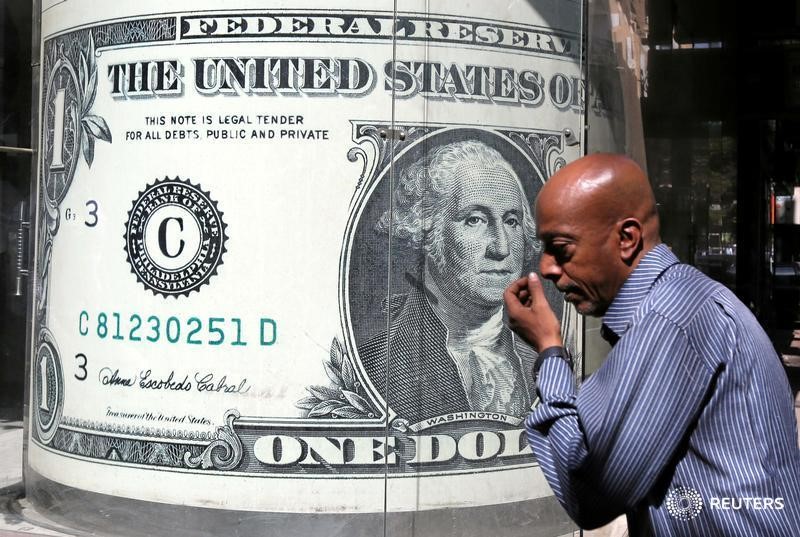
© Reuters. A man shows US dollar bills after withdrawing money from a bank in Harare
By Stanley White
TOKYO (Reuters) – The dollar fell against the currencies of major commodity exporters on Monday, with investors raising their bets on countries that will benefit from rising prices for oil, metals and other goods.
The dollar also fell slightly against the pound sterling and the euro, but remained at several month highs against the yen and the Swiss franc due to increased Treasury yields.
Analysts said sentiment for the dollar has improved because of positive economic data and progress in approving a $ 1.9 trillion stimulus package, but that the dollar will continue to fight commodity currencies amid strong expectations of a recovery in global trade.
“We are seeing a significant divergence in the dollar,” said Yukio Ishizuki, foreign exchange strategist at Daiwa Securities.
“Commodity prices are simply not falling, so there is no way for the dollar to rise against e. However, the dollar will remain strong against the yen because yields are the main driver.”
The Australian dollar rose 0.3% to $ 0.7702, while the New Zealand dollar rose 0.18% to reach $ 0.7177. Antipode currencies are in demand because of their links to the global commodity trade.
The US currency fell 0.38% against the Norwegian krone to 8.5283 and fell slightly to 1.2637 Canadian dollars, with traders buying the coins from oil exporters.
Some traders said that a jump in futures above $ 70 a barrel for the first time in more than a year triggered a flood of offers for commodity currencies in the early Asian trading session.
Against the euro, the dollar fell slightly to $ 1.1921, but remained stable at $ 1.3844 against the pound sterling.
The basket against the top six currencies stood at 91.895, not far from a three-month high hit on Friday, after data showed that the US economy created more than twice as many jobs as expected in February. .
Speculators cut their dollar short positions last week to $ 27.80 billion, which is the lowest short since December 15 and suggests that dollar bears are giving up on the dollar.
The dollar traded at 108.35 yen, close to a nine-month high. The dollar also fluctuated against the Swiss franc, trading near an eight-month high of 0.9319, driven by increased Treasury yields.
Fusion Media or anyone involved with Fusion Media will not accept any liability for loss or damage as a result of relying on information, including data, quotes, charts and buy / sell signals contained on this website. Be fully informed about the risks and costs associated with trading in the financial markets, it is one of the most risky forms of investment possible.
